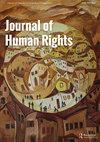Defending the watchdogs: How citizens and courts protect the press
IF 1.6
2区 社会学
Q3 INTERNATIONAL RELATIONS
引用次数: 0
Abstract
Abstract A free and independent press monitors government actions, broadcasts public grievances, and facilitates debate and dissent among citizens. Because of this, some executives run interference—censoring newspapers, harassing journalists, and shutting down media outlets—whereas other executives do not. What explains this variation? We argue that executives decide to repress or to respect the press based on the sanctions they anticipate from two important constituencies: courts and citizens. We expect that attacks are less likely when courts can make adverse rulings and when citizens can vote leaders out of office. In addition, we suggest that these constraints can function as substitutes; we anticipate the reductive effect of judicial independence wanes as the level of electoral democracy rises, making courts vital to protecting journalists in less democratic systems. We evaluate these expectations using panel data on executive branch attacks on the press in 175 countries, from 1949 to 2016, and find strong support.捍卫监管机构:公民和法院如何保护媒体
摘要一个自由和独立的媒体监督政府的行动,传播公众的不满,并促进公民之间的辩论和异议。正因为如此,一些高管进行干预——审查报纸、骚扰记者和关闭媒体——而其他高管则没有。是什么解释了这种变化?我们认为,高管们决定压制或尊重新闻界,是基于他们对法院和公民这两个重要选民的制裁。我们预计,当法院可以做出不利裁决,当公民可以投票罢免领导人时,袭击的可能性较小。此外,我们建议这些约束可以作为替代;我们预计,随着选举民主水平的提高,司法独立的减少作用会减弱,这使得法院在不太民主的制度中对保护记者至关重要。我们使用1949年至2016年175个国家行政部门对新闻界的攻击的小组数据来评估这些期望,并得到了有力的支持。
本文章由计算机程序翻译,如有差异,请以英文原文为准。
求助全文
约1分钟内获得全文
求助全文

 求助内容:
求助内容: 应助结果提醒方式:
应助结果提醒方式:


